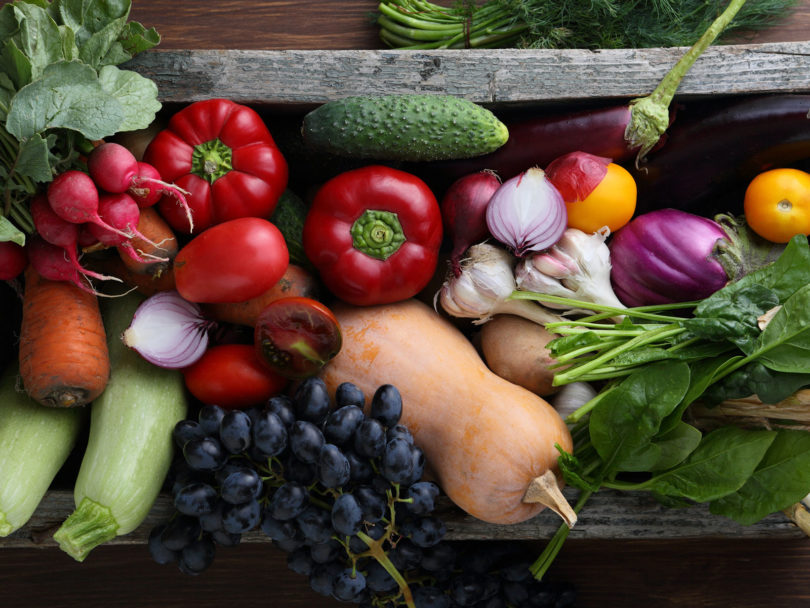Articles about healthy eating almost always tell you to eat organic, local, seasonal and/or fresh foods. Unfortunately, these terms are often conflated, making it difficult for consumers to weigh the relative benefits of each.
What if you were told that fresh food could be better for you than organic? Would it change the way you eat? The way you shop?
Shahla Wunderlich, a professor of nutrition and food studies at Montclair State University in New Jersey, says that eating fresh food is far more important than eating organic. Here’s why.
Why You Need Fresh Produce
In one study, Wunderlich found no significant difference in vitamin C content between organic and conventionally grown broccoli. However, she did find major seasonal differences — broccoli purchased during the fall had nearly twice as much vitamin C as that purchased during the spring, regardless of whether the broccoli was organic or conventional.
“We use vitamin C as a biomarker [of overall nutritional content] because it’s one of the nutrients that degrades most rapidly due to heat and time,” Wunderlich explains. Most nutrients degrade more slowly than vitamin C, with fat-soluble vitamins, like vitamin A, likely being the most durable, she says. However, many vitamins and minerals start to degrade noticeably within just a few days.
As for methods of preservation, Wunderlich says that refrigerating, or better yet freezing, works well. Her research found that the nutritional quality of frozen fruits and vegetables is only slightly lower than that of fresh produce, and significantly higher than canned produce.
While organic produce doesn’t contain more nutrients, it does tend to have fewer toxins — including pesticide residues — than conventional produce. However, the actual difference is small, and contrary to popular belief, organic farming does use some pesticides. From an environmental perspective, this would seem to make organic farming better for the environment. Organic farming, however, averages 20-percent lower crop yields, thus requiring more land to produce the same amount of food, largely offsetting any environmental benefit of organic farming.
In addition, organic produce has to be shipped — just because it’s organic does not mean it’s local. According to a study done at the University of Alberta in Canada, the impact of the greenhouse gasses from food transportation diminished the benefits of environmentally friendly organic growing methods and was comparable to transporting the same amount of conventionally grown produce.
Over the past decade, several systematic reviews have failed to find clear and significant benefits to consuming organic foods in place of conventional alternatives. Most studies, including Wunderlich’s, have focused on plant foods, and there is at least some evidence that eating organic offers more benefit when it comes to animal products.
How to Buy the Best Produce
Organic produce commands a hefty price premium — typically around 50 percent higher than conventional produce. As Wunderlich acknowledges, “People who buy local or organic often don’t care about price.” However, she stresses that eating fresh foods, and by extension, seasonal and locally produced foods, is both more important and more affordable than buying organic.
Most nutrients begin to break down the moment a fresh piece of produce is picked, so the sooner it gets to you, the better. Many studies have shown that a fruit picked closer to ripeness is more nutritious than one — organic or not — picked before or after its peak of ripeness.
Wunderlich advises buying seasonal, locally produced fruits and vegetables whenever possible, ideally from farmer’s markets. Although their produce may not be labeled organic under United States Department of Agriculture standards, many local farmers have environmental goals similar to those of organic farmers. Where fresh food is unavailable, frozen food is preferable to canned or non-preserved foods.
The Environmental Working Group lists these foods as the “Dirty Dozen,” suggesting that it’s better to choose organic because of pesticide residue:
- Strawberries
- Spinach
- Nectarines
- Apples
- Peaches
- Celery
- Grapes
- Pears
- Cherries
- Tomatoes
- Bell peppers
- Potatoes

